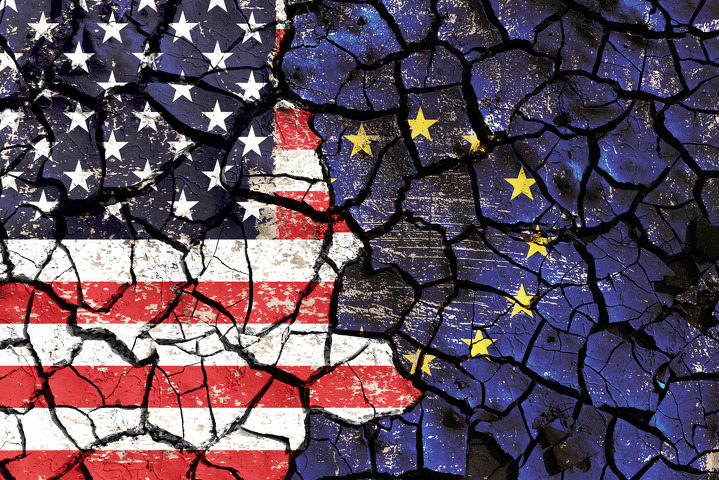The discussion entitled “The Future of Transatlantic Relations” was the third event of the Foreign Policy Salon, a series of foreign and security policy events initiated by the Győr Office of the József Antall Knowledge Center. The invited expert for the even taking place on the 17th of March was Dr. Balázs Mártonffy, Director of the American Studies Research Institute at the National University of Public Service, who is also a John McCain Award Holder Assistant Professor at the same university. The conversation was moderated by Bence Kocsev, Head of the Győr Office of the József Antall Knowledge Center.
The primary goal of the event was to assess the present and the future outlook of the transatlantic relationship in the light of the coronavirus pandemic, and in the view of the 2020 US presidential election. The all-encompassing questions spanning through the whole discussion were: to what extent do the challenges of an increasingly multipolar world order influence these relations, and in which policy areas could this partnership be further improved? Against this background, the discussion started with a rather general overview of the transatlantic relations, in which the more and less dynamic periods of cooperation as well as the latest geopolitical changes and their concomitant effects on this nexus were addressed through a triple-criteria scheme (methods, values, interests) set up by the invited expert. This was followed by reflections on some specific arenas and policies of the Euro-Atlantic partnership, which fundamentally determine the depth and the nature of the transatlantic integration while also being responsible for certain contradictions and clashes within the community. In this context, the discussion was dominated by security policy issues (like the future of NATO, the threats and challenges coming from Russia and China, etc.), but some specific energy, environmental and economic policy matters were also touched upon. Towards the end of the discussion, Central European and European Neighborhood Policy issues within the transatlantic framework were also briefly analyzed.
The event was realised with the support of the Prime Minister’s Office of Hungary and the Bethlen Gábor Foundation.

